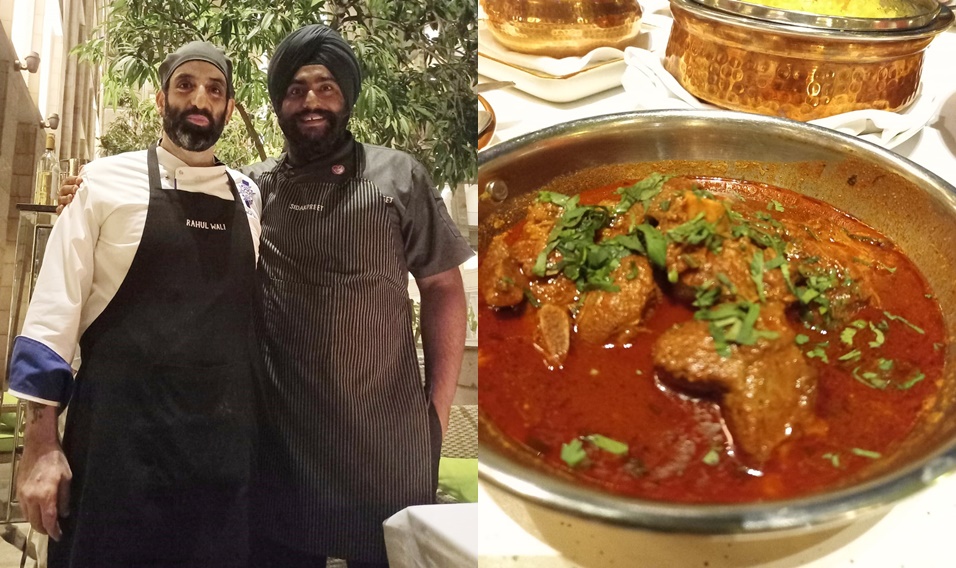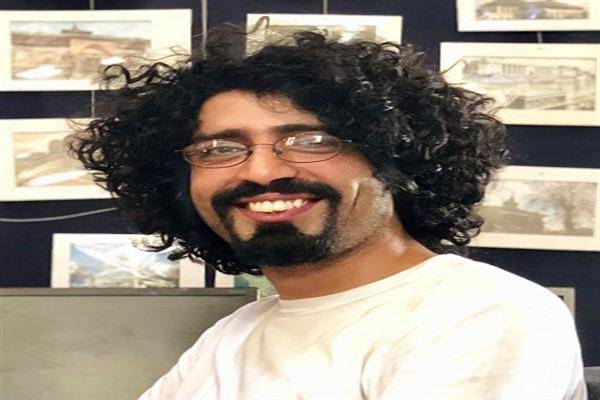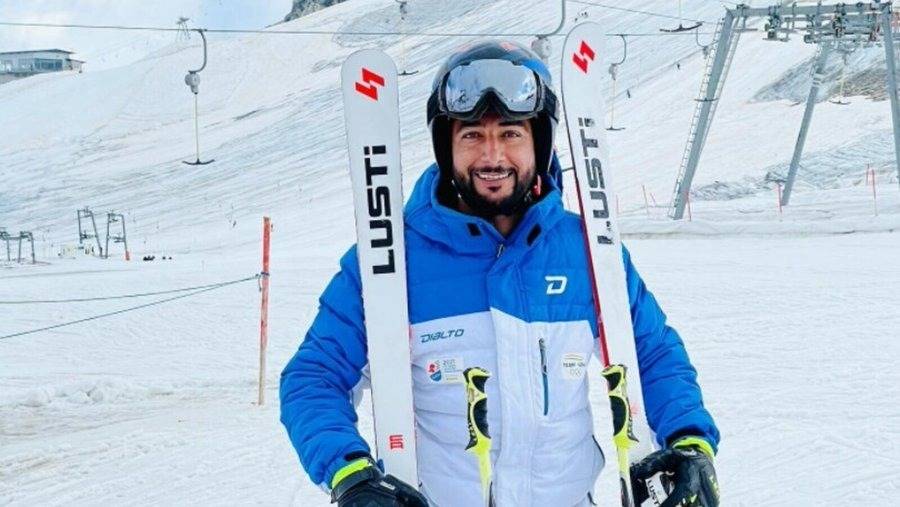Instead of the poet’s ‘garland of flowers’, we were treated to a cornucopia of flavours and a procession of food that brought out the depth of the Valley’s Pandit cuisine, which has been overshadowed by the fame of the Wazwan table that the Muslims lay out on festive occasions…reports Asian Lite News
The Kashmiri word ‘poshmaal’ at once brings to one’s mind Shankar Mahadevan’s mellifluous rendition in ‘Mission Kashmir’ of the 19th-century romantic poet Rasul Mir’s lyrical love ballad, whose refrain is: ‘Rind posh maal gindane drai lo lo’ (When the shadow of the posh maal, or garland of flowers, is so enchanting, what would be the effect of her physical presence).
The song, which is sung in Kashmir on all celebratory occasions, ironically, is the one Hrithik Roshan’s character belts out before he engages in the hateful act of blowing up Srinagar’s television tower.
But at the Kashmiri Pandit food festival named Poshmaal, which just concluded at The Lodhi in New Delhi, there was only love floating in the nippy breeze that made sitting in the vast outdoors area of the luxury hotel’s all-day restaurant a pleasure.
Instead of the poet’s ‘garland of flowers’, we were treated to a cornucopia of flavours and a procession of food that brought out the depth of the Valley’s Pandit cuisine, which has been overshadowed by the fame of the Wazwan table that the Muslims lay out on festive occasions.
Fortunately for Pandit cuisine, it has found celebrated guardians — the Gurugram restaurant Matamaal and singer-turned-chef Sanjay Raina, for instance — and now Rahul Wali, who’s a Le Cordon Bleu-trained chef specialising in European cuisine, has become the ambassador of a culinary tradition he left behind in Srinagar after his family fled the city in 1990 with a suitcase packed with whatever his parents could stuff into it.
The cuisine travelled in his memories and in the food cooked by his mother and grandmother, and after years spent serving European food, Wali decided to go back to his roots.
If the meal prepared by him, which I polished off with my better half, who’s a Kashmiri Pandit, and whose mother is one of the best cooks I know of, was any reason for me to bubble over with love, then it can only be said that Wali’s change of heart has been for the good of all of us hungry souls. And he has found a talented mate in chef-entrepreneur Sidakpreet Singh, who shares his passion for putting Pandit cuisine on the map of global gastronomy.
What sets Kashmiri Pandit cuisine apart, I asked Wali. He pointed out that it must be the only mutton-led cuisine in the country that doesn’t use onions, garlic or tomatoes. And the Pandit kitchen also keeps a minimal number of spices — compared to Awadhi cuisine, it is almost Spartan — believing in the philosophy of getting the most out of the least. The spices used include fennel powder (‘saunf’), dry ginger powder (‘sonth’), red chilli powder, turmeric (‘haldi’), cumin powder (‘zeera’) and asafoetida (‘heeng’).
Our meal included surprises such as ‘warimuth’ kababs made with the jet black turtle beans and ‘sheyeem’, based on a 130-year-old recipe that the chef got from his grandmother — it’s very European in its presentation, being roulades of mutton mince, but the Kashmiri Pandit touch came from the spiced yoghurt gravy (‘yakhni’), which uplifted the preparation on the palate. There was also a havan dal made with whole moong dal cooked in ghee. It proved how the best things in life come in the simplest packages.
My way of checking out a chef’s expertise in Kashmiri Pandit cooking is to ask for two dishes — kabargah, or mutton ribs stewed in spices and fried, which can be overdone in overbearing hands, and haak, or collard greens cooked in a gently flavoured heeng gravy, which can be ruined if the heeng is not dealt with delicately.
Wali cleared the test with flying colours and we were in the mood for more — my favourites: dum aloo, where what to watch is how deep into the potatoes the red chilli gravy is able to penetrate; and, of course, the gold standard, roghan josh, a flavourful mutton preparation cooked in a Kashmiri red chilli gravy. All you need is saffron rice to do full justice to these beauties.
Having a love-hate relationship with paneer, or czaman, as the Kashmiris would call it, I make it a point to check out a chef’s comfort levels with this much-abused ingredient.
Again, Wali was able to reaffirm my faith in Kashmiri Pandit cuisine with his chaman qaliya, an addictive preparation of paneer cubes cooked in milk and haldi. Your doctor would certainly recommend it.
The chef also took care of his spread of chutneys — the ones from the Kashmiri Pandit table, the ‘czetin’, are indeed special: radish strips (mujj) and yoghurt; walnut (dyon); and dried pomegranate (dean). Given an opportunity, I can make a meal out of just the ‘mujj’ chetin (talking about mujj, you must have the Kashmiri Pandit speciality, mujj gaad, or fish and radish cooked together; no Kashmiri Pandit meal is complete without it). Wali, however, impressed me with his dry pomegranate chutney.
Kashmiris don’t have much to offer by way of dessert, but Wali was in no mood to make us end the treat he had laid out without us digging his brand of phirni made with sooji and not rice. It was clearly the showstopper that ensured we went back with a happy heart and contented stomach.
ALSO READ-MPs table motion to mark anniversary of ‘genocide’ of Kashmiri Pandits





